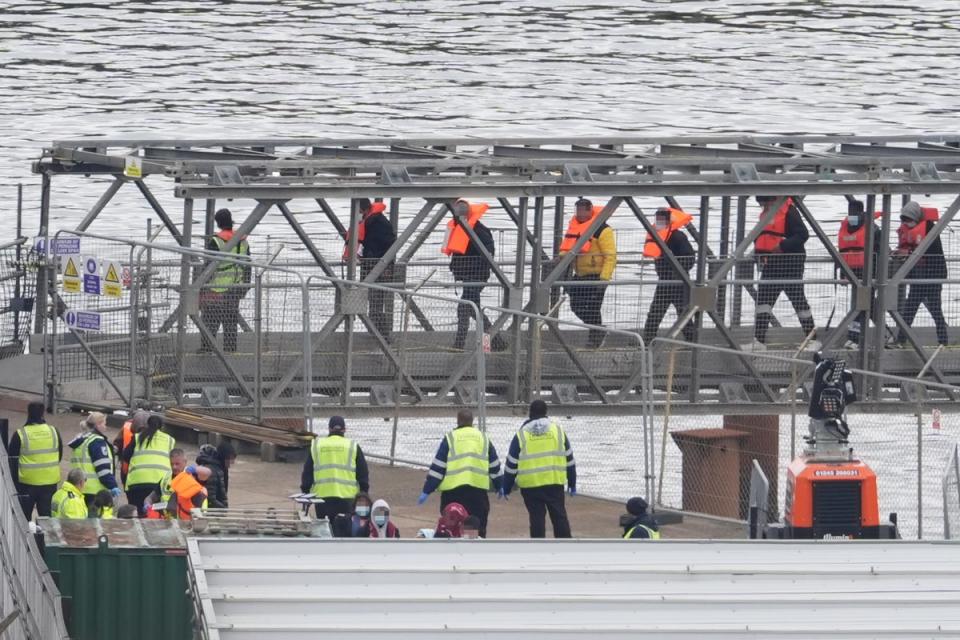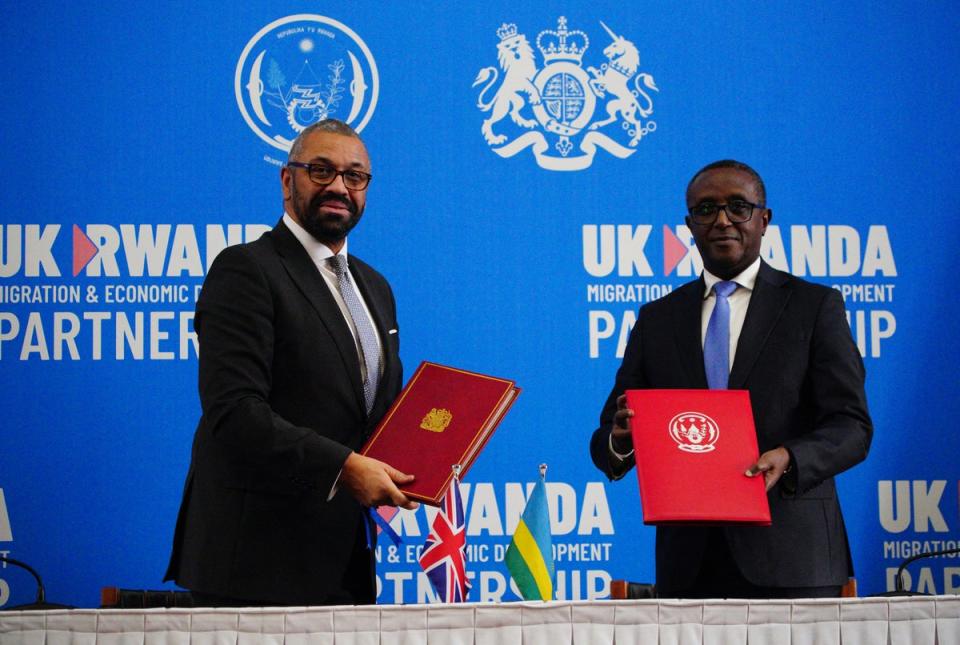Home Office says Rwanda migrant detentions will start within weeks
The Home Office has confirmed it will start detaining asylum-seekers within weeks for the first planned flights to Rwanda – after reports of a surprise move to round up people for deportation from Monday sparked anger from human rights groups.
Rishi Sunak insisted this week that flights carrying asylum-seekers to Rwanda would take off in July, as the Rwanda Bill passed through parliament and into law.
Despite still facing a host of difficulties in delivering on his flagship policy, Mr Sunak will be keen to show progress on illegal migration before calling a general election as pressure mounts on his leadership.
On Sunday, The Guardian published a report claiming the Home Office was set to launch a surprise two-week operation on Monday to detain refugees turning up for routine meetings at immigration service offices for deportation.
The article claimed they would be immediately transferred to detention centres, which have already been prepared for the operation, before flights taking them to Rwanda. The passed legislation means deported asylum seekers’ applications will be dealt with by the east African country.
The Home Office would neither confirm nor deny the paper’s claims, but said that, following the passage of its legislation, the “government is entering the final phase of operationalising this landmark policy to tackle illegal migration and stop the boats”.
“At some stage inevitably this will include detaining people in preparation for the first flight, which is set to take off to Rwanda in 10-12 weeks. It would be inappropriate to comment further on operational activity,” the spokesperson said.
Human rights advocates were quick to condemn the reported plan, warning such a move would further traumatise people fleeing torture and persecution.
“Make no mistake, this latest attack on refugees by this government will further traumatise people who have fled from torture chambers seeking safety and a chance to rebuild their lives in the UK,” said Sonya Sceats, chief executive of charity Freedom from Torture.
“We know from our clinical services that even survivors of torture who are completely safe from harm tend to live in a semi-permanent state of hypervigilance to threats, because of their history of being rounded up, detained, and abused in authoritarian states.

“So news of this crackdown is sure to trigger mental health collapse in many men, women and children in the care of our therapists.
“Compassionate people up and down the country will be sickened by this performative cruelty designed to generate headlines and stoke fear among people fleeing torture and persecution. This is not who we are as a country.”
Glasgow-based lawyer Aamer Anwar called for people to “mobilise to oppose this vicious inhumane policy”, saying it was “time to channel the spirit of Kenmure Street” – a reference to the community protest which successfully halted an immigration raid in 2021.
While Mr Sunak’s new legislation has sought to make it harder for people to challenge their deportation under the European Convention of Human Rights, there are still several ways in which people can do so.
“Perhaps we will see legal applications sooner rather than later if this report is correct,” said Sir Jonathan Jones, formerly the most senior lawyer in the civil service, in response to the Guardian’s story.
It comes days after The Telegraph reported that people earmarked for deportation were expected to be held in immigration detention centres, quoting a government source as saying: “As soon as the treaty is ratified and we have got Royal Assent, we will start getting people ready – and that includes detention.”

The number of detention places for migrants earmarked to be sent to Rwanda has been increased to 2,200, which is more than double the amount officials had planned a year ago.
It comes as Ireland’s government announced plans to draft law changes which would enable asylum-seekers to be sent back to the UK, after justice secretary Helen McEntee revealed that four in five new arrivals to Ireland had crossed the border from the UK.
Ireland’s deputy PM and foreign minister Micheal Martin linked this rise to the Rwanda policy, which he said meant people “fearful” of staying in the UK were crossing the border to Ireland rather than be sent to the east African nation.
Pressed on whether the UK was “exporting the problem”, Mr Sunak insisted to Sky News on Sunday that the comments from Ireland showed the “deterrent” factor of his policy was “already having an impact”.
Around 500 people have crossed the Channel in a total of 10 small boats over the past two days, the latest Home Office figures suggest, bringing the total this year to more than 7,000 – an increase on the same period in 2023.
Five people – including a seven-year-old girl – died trying to cross the Channel earlier this week, just hours after Mr Sunak’s bill passed through parliament.
Last week, The Independent spoke to refugees in Dunkirk who said the policy would not deter them from making the dangerous crossing in small boats.


